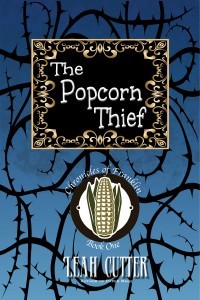Leah R. Cutter's Blog, page 9
September 29, 2015
Free Fiction – Lizard Horses
One day this spring, while at a workshop, Kevin J Anderson said, “You always know what you’re getting with a Leah Cutter story. Two middle-class white girls from suburbia.”
(In case any of you are wondering, yes, he was being 100% sarcastic.)
He did, however, hit the nail on the head.
Readers can’t predict what they’re going to get when they pick up a story of mine. I personally believe the only thing that’s common from one of my stories to the next is that there’s some level of weird. Sometimes that story is only slightly flavored with the weird. Other times, well, the story is a bit more out there.
The story this week, I’ve been told, is weirder than normal, for me.
Part of that is because this story is based on a Hungarian myth called, “The Dragon Rider.” Eastern European myths have a different rhythm than western Europe. The cycles are different, not just the “tell me three times” that you have in fairy tales that are more familiar to most western readers, but how things escalate (or don’t).
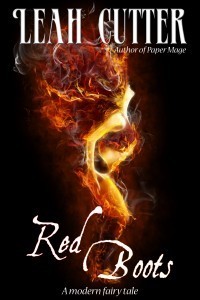 The very first short story I sold professionally is a re-told fairy tale. It’s based on the Hans Christen Anderson story, The Red Shoes. But because she’s a country western dancer, it’s The Red Boots.
The very first short story I sold professionally is a re-told fairy tale. It’s based on the Hans Christen Anderson story, The Red Shoes. But because she’s a country western dancer, it’s The Red Boots.
I don’t have any novels that are re-told fairy tales. I was able to figure out the “spiritual brother” of this short story, however.
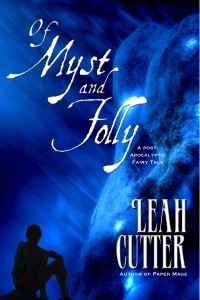
Of Myst and Folly is a post-apocalyptic fairy tale. (Remember, I started off this post talking about levels of weird and expected.) It isn’t so much about existing fairy tales but about ones that start with the coming of magic in a post apocalyptic world.
You can read the prequel to the novel here, Of Rifts and Myst.
In the meanwhile, welcome to my weird world. I hope you enjoy the following story.
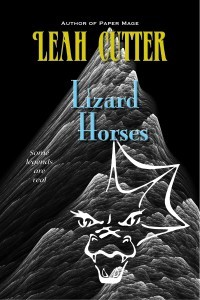
Lizard Horses
Jelek lives in modern day Hungary. He has a club foot and walks with crutches. He spends as much time as he can tucked away in his bedroom loft, hiding from the world. He loves reading old myths and legends, like the stories of Hungarian wizards, how they only drink milk and always carry around weighty spell books.
He also knows the old wives tales about hens mating with lizards, and how they can be tricked into hatching lizards eggs instead of their own.
He thinks they’re all just stories, tales from an earlier time.
But what if some myths are true?
Based on the Hungarian folk tale, “The Dragon Rider.”
Available for $0.99 from Amazon, Barnes and Noble, Kobo Books, and iBookstore.
Change had crept through my little village of Bakonybél over the years, particularly once the Soviet Union collapsed and Hungary tore down the barbed wire along her borders.
We now learned English and German at gimnázium, not Russian. Foreign goods—mostly imported from nearby Austria, though some American– and Chinese–made things as well—were regularly for sale at the local green grocers.
Tourists, too, now sat at the kávé shop, particularly when the weather was nice, spreading out their maps and their books, taking up extra tables and chairs, more space than any Hungarian would, as well as always drawing attention to themselves, their voices filling the air with foreign words.
Even outside the village, beyond the picturesque white houses with red clay roofs and the thin, winding lanes, things had changed. The forests were protected—though some would claim “again,” as they’d been hunting grounds for the Habsburg royalty ages ago, and peasants caught poaching in them meant death, then, merely fines, now. Electricity flowed into even the smallest huts, and TV brought its western culture, too. We no longer had to wait, like in the bad–old–days, for a phone line—cell phones gave us instant contact.
Yet, some things remained the same. Our little house at the base of Köves Mountain had foot–and–a–half thick walls, built over a century ago, to keep out both the winter cold and the summer heat. Mice rustled in the thatched roof at night, and birds stole pieces of hay from it for their nests. In the winter, I lay dreaming in the loft above the living room, kept warm by the hearth fire there, the little lame boy out of everyone’s way and easily forgotten.
I did help Mother with the garden in the backyard during the summer. It produced tomatoes, cucumbers, strawberries, cabbage, and towering stalks of dill. Just beyond the stone wall, under the trees and the start of the forest, blackberry brambles rolled, tempting me to reach past the barrier of thorns to pick their sweet fruit.
Mother also kept yellow–legged, black brood hens, one of the many reasons why I wasn’t permitted a dog. The hens roamed freely through the yard, terrorizing me as a child, moving faster than I could on my crutch, with sharp beaks and large wings. I always celebrated in the fall when we turned them from brooders into stewers.
When one of them stopped laying eggs in the nest box, Mother gave me the job to go find the hen’s new nest.
Summer had just settled in, with deep blue skies and long hot days. School had let out a month before and I filled as much time as I could tucked away in my loft, reading about faraway lands, like Earthsea and America, colonies on Venus as well as in India. The rest of the time I did the chores set out for me, sometimes better, sometimes worse than what was expected.
The grass in the yard, closest to the house, had started to brown. It wasn’t long enough to catch at my single wooden crutch—not yet, anyway. As I was finally big enough to use the push mower myself—despite only one good foot to balance with—the chore of mowing the grass had been passed from my older brothers to me.
That was something else that had changed. In the bad–old days, my birth defect would have been called an ördög láb—a devil’s foot. The old women at the market, in their kerchiefs and black skirts, wouldn’t have sold me anything, and made signs with their hands to ward away the bad luck I carried.
Now, I was merely teased, called Nagybácsi Sánta—Uncle Lame—despite being only a teenager.
I snagged a sun–warm tomato as I limped past the rows of vegetables, biting into the sweet flesh with relish, the seeds dribbling down my chin. Nothing ever tasted as fresh at the market.
I passed out of the bright sunlight and into the shade of the trees that grew just beyond the stone wall that marked the border of our property. In the corner of the yard leaned a ramshackle hut, once a garden shed for storing tools and the occasional barrel of wine. One of the walls had collapsed over the winter, changing the square doorway into a stunted triangle.
Balancing on my good, right foot, I banged on the door jams with my crutch, making sure they wouldn’t collapse suddenly. Then I knelt down and stuck my head into the hut. The smell of molding hay and the sulfur of rotten eggs rolled out to me. I held my breath, blinked, and peered into the darkness.
Sure enough, there was the missing hen, clucking and cackling. As my eyes adjusted, I saw movement in her new nest. She hadn’t just laid eggs there, no, she’d hatched them. Though I didn’t hear any peeping, the nest rustled as if half a dozen chicks lay hidden.
I knew I should go back to the house to get a basket to collect up the chicks. Even if I’d had two free hands and hadn’t needed one to handle the crutch, I couldn’t have caught and carried them all.
Still, I decided to catch at least a few now. I slid my crutch across the threshold and poked at the nest, startling the brood hen. She stood up and hissed at me, spreading her wings wide.
Five lizards sped out from loose collection of hay and grass under her.
I pushed myself back, startled, landing on my ass in the dirt.
Stupid tyúk. Lizards ate eggs. Bird probably had been keeping them warm for a week, not her chicks.
I grabbed my crutch and struck at the lizards coming out of the hut. Missed the first one as it raced away, and the second one as well. I ended up smacking the ground hard, jarring my arms as I pounded the dirt.
But the next three came out in a straight line. Whack. With a single stroke, I stunned them all. Then I took my crutch in both hands and smacked them again and again, until they were all dead.
They were some of the ugliest lizards I’d ever seen. Gray–stone colored, with nobby heads and matching points running down their spines. Their jaws were funny as well, over developed, like they could unhinge them to swallow something bigger than their heads.
The brood hen came strutting out of the hut like she owned the yard. I pushed myself forward and grabbed her, tucking her under one arm firmly. Then I slid my crutch across the grass, cleaning away the lizard guts, and struggled to get my feet under me.
Mother wasn’t going to be happy about losing the eggs. At least I had the hen, and she hadn’t been hurt.
I glanced over my shoulder at the three dead lizards. Where had they come from? Someone’s pet, maybe, that had gotten loose in the forest? Escaped across the border from Austria? Who knew?
I got myself back across the yard, then deposited the hen behind the gate of the coup. She could just stay there for a week or so until she started laying eggs in the right place again.
As I walked toward the front of the house, I heard a long, low whistle, coming from the lane out front.
I pushed my way past the roses, peonies, delphinium, and the rest of the wild blossoms that Mother grew in the front yard, stumbling all the way to the wall.
There, just beyond the iron bars of the gate, stood a boy I’d never seen before, though I’d guess he was my age. He wore all black, like the old women at the market, though his clothes were more modern, with a long sleeved shirt and jeans. Over his shoulder hung a black leather messenger bag that bulged with books. His hair was as black as everything he wore, but his eyes reflected the blue of the sky.
“Jó napot kivánok,” he said, giving the old fashioned, formal greeting.
“Jó napot,” I replied, still wary. Too many salesmen had come to our gate, believing the lies their city cousins had told them, looking to sell shoddy wares to unsuspecting peasants.
“Have you seen my lizards?” the boy asked.
“Your lizards?” I said. “Yes, I have. They killed our chicks!” I complained to him, suddenly angry.
“No, not my lizards,” the boy assured me. “They might breed with a hen, but they wouldn’t hurt her brood.”
Breed with a hen? How stupid did this boy think I was? That was just an old wives’ tale.
“Yes, I saw them,” I told him coldly. “I killed them, too.”
“You what?” the boy asked, turning his huge eyes toward me.
I couldn’t believe it. He actually had tears in his eyes! I knew they’d been someone’s pet and had escaped.
“How could you kill them?” he lamented. “They were my babies! My chicks to watch over, until they’d grown.”
“I didn’t kill all of them,” I grudgingly admitted. “Two of them got away.”
“Where?” the boy asked eagerly, wiping his eyes with the back of his hand.
I shrugged. “Out of the yard, probably over the wall and into the woods,” I told him. I gestured toward it with my crutch. “They didn’t escape too long ago.”
“No, no,” the boy said, shaking his head. “It’s too late, now that they’ve reached the trees. I’ll have to catch them later. When they’ve grown into my horses.”
Horses? Obviously the boy was touched. It made me feel closer to him, actually. An old man at the market once told me that I’d been touched by the devil, that he’d grabbed me by the ankle to keep my soul from escaping into this world. That was why my foot was so twisted and bent.
The boy paused and gave a great sigh, like one of the old timers thinking about the great deeds of his ancestors and how today’s youth could never measure up. “I will be back in seven years,” the boy said after another moment.
“Really?” I asked. I’d never heard of such a thing. It just confirmed that he was bolond, as crazy as Old Hajmás who lived up in the hills and was still armed against the Russians returning.
Though given the way the people had been voting recently, maybe Old Hajmás wasn’t that crazy.
“Before I go, could I have some milk?” the boy asked.
“Sure,” I said, though I thought it was an odd request. I passed into the cool house, got out one of my cups with a lid on it, filled it with milk and brought it back out into the heat of the afternoon.
The boy now sat on the dusty road outside the gate, one of his books open in his lap. He clutched at a necklace drawn outside his shirt collar, his hand wrapped tightly around whatever was strung from it. His eyes were closed and his lips moved, as if in prayer.
I sat down awkwardly on the other side of the gate and waited. The warm smell of freshly cut hay came on the wind. Cicadas sang in the nearby trees. I put the cup of milk outside the gate, then drew my arm quickly back to safety and waited.
What kind of boy would ride lizards as horses? Would he direct them to battle, their huge jaws crushing tanks and castles alike? Would they move slowly, ponderous as dinosaurs? Or quicker than a wink?
When I looked up, I saw the boy smiling at me from his side of the gate. “I’m Csörsz,” he said, pronouncing it the old fashioned way with two syllables—Chur–urs.
“Jelek,” I told him. We shook hands through the gate. His palm was rough, like tree bark, and strong.
“What’s wrong with your foot?” Csörsz asked, his eyes as wide and innocent as a boy half his age.
“Birth defect,” I said, surprised, giving him the short answer. It was good enough. Maybe some year we’d have enough money and I could go to Budapest to have it operated on.
Maybe someday Old Hajmás’ pigs would fly, too.
“The old folk say the devil touched you, don’t they,” Csörsz stated. He held up his necklace—an odd shaped hammer, with one hand, while holding open the collar of his shirt with the other. “Me too!” he said.
A long jagged scar ran down the center of his chest, like a lightning bolt. The skin was softly pink, as if it was newly healed. But there wasn’t any puckering around it—it wasn’t really a wound, but a birthmark.
“This mark was why my nagynéni sent me to study, far away with my brothers,” Csörsz confided. “Where I learned…everything.”
“Like what?” I demanded.
Csörsz shook his head at me, then reached for his cup and finished his milk. “Thank you,” he said. “Though you killed my lizards, you were still kind to me. For that, I will warn you. Be sure to keep all your hens in tonight. The storm will be bad.”
“What storm?” I asked. The sky was clear and hot, and the barometer probably wouldn’t change for the next month.
“You’ve been warned,” Csörsz said with a smile as he stuffed his book back in his bag.
I tried to see the title, but Csörsz moved too quickly.
All I caught a glimpse of was one of those ugly lizards, done in gold on the cover.
And maybe a single word. Sárkány. Dragon.
Ξ
Seven years passed easily. I didn’t spend much time thinking about Csörsz, or how he’d played at being a garabonciás, a Hungarian wizard with magic books who drank only milk.
More changes came to Bakonybél: more tourists visiting the beautiful forests, the mountains, and the old abbey; the picturesque streets growing wider to handle the summer traffic; broadband internet arriving and even a club–footed boy finding he could make a living on the web.
My brothers moved out but I stayed, my old wooden crutch replaced with stronger metal ones. I still worked with Mother in the garden through the long summer days, chasing chicks and hens and wondering about lizards growing to horse–size in the nearby trees.
Mother had just hung up the laundry and gone to take her afternoon nap when I heard a long, low whistle coming from near the lane.
I didn’t remember Csörsz, not until I saw him again. Then I recognized the call, the same as he’d given before. He was all still in black, with the same messenger bag slung over his shoulder.
“Jelek,” Csörsz said, smiling. “I told you I would come back.”
“Has it been seven years?” I asked, though I knew it had been. “Have you come back for your horses?”
“I have,” Csörsz said. “But first, may I have another glass of your excellent milk?”
“Of course,” I told him. I still used a cup with a lid—habit from the old crutch, when I was a teen and less steady on my one foot.
Csörsz sat on the ground outside the gate again, eyes closed and lips moving in prayer.
I boldly opened the gate this time, set his milk down, then leaned against the jam, the warmth from the stone sinking deep into my sore back muscles, encouraging me to close my eyes as well.
When I opened them, Csörsz was staring at me. “You’ve grown into a fine young man,” he said, as patronizing as any uncle from the market.
“Thanks,” I said, unwilling to tell him the same. “Where are you going to look for your horses?” I asked.
“Up Köves Mountain. I know a spot, where they might be hiding,” Csörsz said. He finished his milk, then caught my eye. “You should get your mother to take her laundry down. There will be another storm this afternoon. Worse, much worse, than the last one.”
I remembered, now, the storm that had blown up out of nowhere the afternoon Csörsz had first come looking for his lizards. Ancient trees had fallen and blocked the road leading out of the village. It had taken three days before they’d been cleared. All our hens and their chicks had survived, thanks to Csörsz’s warning.
“I’ll make sure it gets put away,” I told him. I took the cup, then stood as he did, pushing myself up against the warm wall.
“I’ve thought about you,” Csörsz suddenly told me. “How you were marked, like I was. How you could have been a brother of mine.”
“But your mark is hidden,” I complained. “Mine—everyone can see.”
Csörsz nodded slowly. “Yes. That’s probably why you weren’t chosen. Why you can’t be.” He held out his hand. “But I’d still be honored to call you brother.”
I took hold of his hand and shook it. It still felt like rough bark, though even stronger, now.
Before I could escape, Csörsz pulled me closer and whispered in my ear, “You can still fly,” he promised. “You already do.” Then he let me go and walked away, up the road toward the trees, whistling a jaunty folk tune.
I went back into the yard and closed the gate, locking myself inside. Bolond. Crazy. I was safer here, inside my walls, with my mother and our thin connection to the rest of the world.
The sun beat down with familiar heat. I looked around the proliferation of flowers, everything known, nothing new.
Nothing really changed.
Suddenly, the yard seemed too small and I had a hard time breathing.
I knew I had to follow Csörsz, to see his horses. Even if he was just crazy and not a real wizard. I’d spent too much time dreaming as a boy.
Maybe it was time for me to fly.
I raced along the clothesline, pulling everything down, damp and dry alike, before throwing it all into a basket and dumping it inside the door. I grabbed my second crutch, then I ran out the gate and up the road.
Of course, I wasn’t really running. I couldn’t even jog. The way my foot twisted, riding a bike was impossible too.
But with the second crutch, on smooth ground, I could make good time, swinging myself like a pendulum, leaping forward with an easy gait.
The road curved up the mountain easily. It was paved, now, making it easier for tourists and their cars and bikes. The smell of pines filled the air. Songbirds happily cheered me on, along with a chorus of crickets. I passed from bright sunlight into shade and back into the sun again as the trees dictated. White snowdrop flowers with their double cups bobbed their heads in the cool mountain breeze.
I only caught sight of Csörsz just as he stepped off the road, onto a trail. Had he been waiting for me? Did it matter?
I followed eagerly, plunging into the shade under the trees. I had to go much more slowly now. The trail wasn’t wide enough, or smooth enough, for me to swing along easily. I debated stashing one of my crutches along the side of the path, but in the end kept both.
The trail wound up and up. I was surprised I didn’t meet any tourists hiking. The afternoon grew still under the trees. Not too far off the path I spotted the red caps of csíp⊝s gomba, Mother’s favorite mushrooms. I’d have to remember to come back, or to tell her about them.
Though I was used to the long walk into the village from our house, my arms and shoulders still ached after a while. I had to pause and breathe, sweat flowing from me in the humid air trapped under the trees.
I didn’t spot Csörsz again until after the trail broke, up on a grassy plain, far above the village. While Csörsz walked over to the very edge, gazing down, I stayed apart, under the trees. What was the crazy garabonciás going to do now?
Next to the cliff stood two boulders, gray colored and nobby. Csörsz sat down between them and took out one of his books.
I was too far away to see, but I would have bet that it was the same book I’d seen before, the one with the picture of the lizard on the cover, done in gold.
Csörsz closed his eyes and prayed, rocking back and forth. A cold wind sprang up, chilling the sweat still gathered across my back. Beyond the clearing, clouds rolled in, covering the sky.
I shivered, knowing I was about to get soaked. I wasn’t looking forward to making my way down a muddy trail on my crutches in the rain.
I stubbornly stayed where I was.
This would be my only chance, I knew.
Csörsz continued to rock and pray, keeping his eyes closed as if oblivious to the coming storm. Groping blindly, from inside his bag, Csörsz pulled out a short leather cord. He shook his hand once, twice, three times.
Suddenly, the short cord grew, curling out of his hand. It stretched out long and thin, turning into a set of reins.
The rain started then, cold and biting. Wind pushed at me. If I’d been standing, it would have knocked me over. I pressed my back firmly against a tree, and kept wiping the water from my eyes.
I had to see.
Suddenly, one of the nobby rocks next to Csörsz shifted. It grew, forming an ugly snout first, with huge, over–sized jaws and cold lizard eyes. Csörsz moved faster than lightning, tossing the bit of the reins into the mouth of the lizard and jumping behind it, staying out of its way while it unwound, forming legs and spiny back and…wings?
The creature tossed its head from side to side, but it couldn’t dislodge Csörsz’s bit. With a great leap, Csörsz landed on its back, yanking the creature’s head up. It shook itself all over like a wet dog, but it couldn’t throw Csörsz from its back. Finally, it settled down, its muscles bunched and tense, as if about to take off.
Csörsz shouted his prayers to the sky now. Most of the words were lost to the wind but I caught a few, entreating saints I’d never heard of before, as well as words of power that I didn’t understand but recognized all the same.
Maybe I could have been his brother, in another life, in other circumstances.
Another set of reins formed in Csörsz’s hands, silver and lean, made out of chain. I was ready for the other rock when it transformed. Csörsz caught it with more difficulty, first tossing an end of the chain around its neck and forcing it to the ground before finally driving the bit into its mouth.
I pushed myself up, ready to race across the clearing and leap on the second dragon’s back. This was my chance to fly.
Then I realized my crutches were gone.
Csörsz had used them for the second set of reins.
With one leg now on both steeds, Csörsz tugged on the reins of his lizards—his horses, his dragons. They leaped off the cliff, into the storm, carried away on the winds. His wild yell echoed across the valley. Thunder responded and they disappeared into the clouds.
I found a downed branch to use as a make–shift crutch to get myself off the mountain. The worst of the winds passed below me, though I was soaked through, shaking and sick by the time I got home.
Things changed a little more after that. Within the month, my web business took off and I was finally able to afford the operation to rebuild my club foot. I’d always limp, but instead of a crutch, a cane sufficed.
A year later, a package arrived, containing a beautiful cherry–wood cane that had a silver dragon’s head handle. No return address, of course, but I knew it had come from my brother.
As for flying, I continued to soar the same as I always had, traveling to faraway places in my books and stories and myths, dreaming in my loft of dragons and magicians and stone–colored horses and lizards that could fly.
Crossposted from my website. If you'd like to comment, you can do so here or there.
September 21, 2015
Evolution and Free Fiction
Believe it or not, I didn’t come into the indie publishing with all the skills I needed.
For example, cover design. I am looking at covers all the time, watching trends and designs.
Every time I go into a bookstore, I look at covers. I get the daily emails for Bookbud as well as Fussy Librarian, as well as a couple of trad pub emails, primarily just to look at the covers.
Since I started back in 2011, I’ve already seen covers evolving. For example, fantasy covers (can) use less realistic forms now, more abstracts.
This week, the free fiction is the first short story that inspired the whole Shadow Wars trilogy: The Third Raven.
I thought I’d show you the evolution of the cover for this story.
Take #1: Really ugly.
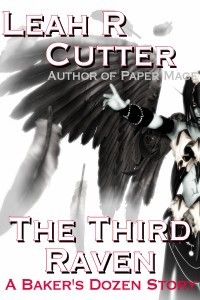
I remember having a very difficult time finding the art for this one. I tried a bunch of different things before I finally landed with this one. But I was never really happy with it.
Take #2: Just as ugly
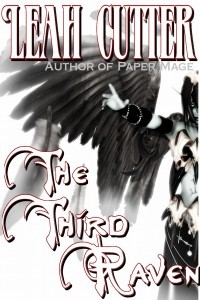
What I was trying to do was to tie the short story in with the novel, The Raven and the Dancing Tiger. That title font was close to what I was using on the novel cover.
Take #3: Better art, good, not great.
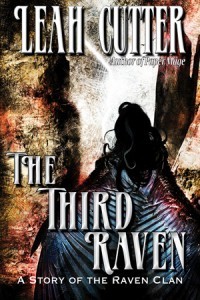
So I finally found the art that I wanted. But this still, to my more developed eye, looks less professional than it could.
Take #4: Much better!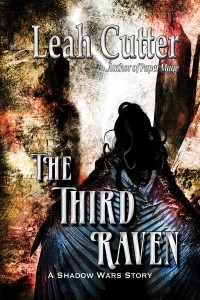
Remember last week I posted about how I write lots and lots of different things? I’m trying now to tie together the pieces that a single reader might like through the author name font. So you’ll see this font on all of The Shadow Wars pieces, on The Changeling Troll, as well as The Clockwork Fairy series. (NOTE: I haven’t updated the covers everywhere. Am working on it!)
So read the story that inspired this trilogy. It will be free here for a week, and is $0.99 everywhere else.
Enjoy!
Here and gone!
Crossposted from my website. If you'd like to comment, you can do so here or there.
September 15, 2015
Free fiction – Out of the Woods
Continuing on this Baker’s Dozen Redux, I have a new story to offer.
Out of the Woods is a post-apocalyptic story. However, it’s more of a thriller than anything else.
Going back to one of my original premise, and the genesis of the Baker’s Dozen Redux–I rarely write stories that feel similar. I don’t believe I have a lot of readers who will enjoy everything I write.
However, for this story, I do have a couple of novels that have a similar “feel” if you will.
Those are the Cassie books, Poisoned Pearls and Tainted Waters. (Next year to be joined by Spoiled Harvest. Then eventually by Bloodied Ice.)
So if you enjoy this short story, you might also enjoy those novels.
This short story was written for an invitation only anthology, Tales From an Alien Campfire. The theme behind the anthology: Most science fiction is written in urban settings. Let’s get some science fiction stories that take place in the woods.
I hope you enjoy my take on it!
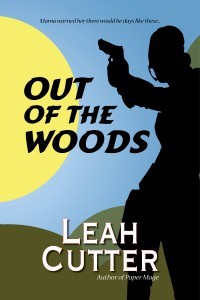
Alarmists had warned how fragile modern civilization was. Unfortunately, they’d been proven right.
Tamara had survived the riots in Seattle. The bombing of the Lewis-McChord military base. The collapse.
She sure as hell is going to survive a group of rednecks hunting her, and get out of the woods.
Originally published in,Tales From an Alien Campfire.
Available for $0.99 at Amazon, Barnes & Nobel, Kobo Books, and iBookstore.
Out of the Woods
Crack–ping!
Tamara froze.
Who the hell was shooting? How far away were they?
She couldn’t count on them being friendly. Not since Seattle had fallen, or the bombing of the Lewis–Mcchord military base.
Belatedly, Tamara crouched down. She was a tiny woman, but still big enough to see. She didn’t move her feet—it had been too warm all fall, and the leaves under the trees were dry, brittle, and loud.
Tamara looked over her shoulder, downhill. She’d been going cross–country, only using roads or trails when she had to, when the undergrowth was too thick. The trees weren’t too grown together here—mainly old oaks that needed their space—but she still couldn’t see anything. Didn’t hear voices, or even leaves crunching.
She stayed frozen, counting heartbeats, waiting for another gun shot.
Silence.
The urge to move, to run, crawled over Tamara’s back like ants. Maybe it was safe. Maybe there wasn’t anyone hunting her.
But Tamara had survived the food riots in Seattle, and they hadn’t been pretty. Alarmists had warned how fragile the US food supply chain was. Unfortunately, they’d been right. It hadn’t taken much to bring down the entire structure, almost three years ago now.
The world had ended in series of bombs and bangs.
News of Sam, Tamara’s brother, was the only thing that could have brought her out of her secured enclave near Federal Way. That he was down on the coast, near Long Beach, also looking for her.
She had to go fetch him. Bring him home. He was the only family she had left alive. Her mother would kill her if she didn’t. Or rather, come haunt her, probably as an angry ghost continually cursing in Japanese, since she’d died before the world had.
Silence continued to reign over the woods, beyond the natural sounds of the starlings querying above her, the thrum of the hummingbird who’d just whizzed by, the soft chirp of frogs from a nearby pond.
Cautiously, Tamara rose.
Crack–pow!
Fuck. They were shooting at her. Had she stumbled onto someone’s property? She hadn’t seen any signs.
Then again, not everyone would advertise their hidey–hole.
Before the shots could get any closer, Tamara raced away, zig–zagging as she ran, dodging behind trees, crouching down when the brush was high enough. She glanced over her shoulder when she dared. Still couldn’t see the sons–of–bitches, but she thought they were downhill, not uphill.
She’d analyzed stock trends for a living before the fall, damn it! Not gun–shot trajectories.
Fortunately, living off the land had left her in much better shape than going to the gym twice a week ever had.
More shots. Coming from downhill still. But coming first from the right, then the left.
Fuck.
Tamara scurried up the hill, keeping her own shotgun strapped to her back. She didn’t want to take the time to load it, or to waste any shot, until she had a defensible location.
She knew better than to hope that these were just warning shots. These people were hunting her.
Why? It didn’t matter. Since the world had fallen, plenty of crazies had risen. Particularly in the fringes of Washington state. Religious fanatics who proclaimed the end of days and were prepared to take everyone with them.
Tamara tried to go west again. The topography map she’d bartered almost a full year’s supply of salt for had showed plenty of valleys and easier slopes that way.
She nearly jumped out of her skin when the next shot came.
Closer.
They weren’t merely hunting her, they were herding her.
They wanted her to go uphill. Not escape into the valley. There had to be at least two of them behind her.
And she was making more noise than a blundering cow through the dried leaves.
She had to get off this hill. Away from whoever the fuck was after her.
She didn’t even like Sam that much.
But he was family. She had to find him. That was what the non–crazy people did. Tried to find their families, tried to scratch out a living, tried to keep their weapons clean and their powder dry until the world came back to its senses.
All Tamera could do was keep trying.
Tamara tried to picture the topography maps as she ran. They didn’t have enough detail, of course. What she wouldn’t give for a working cell phone, maybe a better satellite view of the area. Hell, even cops she could call.
But no one was there, no one to rescue her.
To her left, a dark line drew her attention.
A hardwood tree had fallen, maybe an oak, at least a couple seasons ago. It was mostly just a rotted hulk, the wood pitted with insect holes.
Gratitude that she was as tiny as her Japanese mother flooded over her, and that she was wearing mostly greens and browns, not actual camouflage, but colors that made her blend in.
Tamara scooped up a couple of long pieces of bark that had fallen beside the log. It took her three tries to flip the half–shell over, settling it into the same space it had been.
It didn’t matter how many spiders or bugs called that piece of wood home. They were going to share it with her.
Gritting her teeth, Tamara crawled under the log. At least it smelled nice, woodsy, with fresh dirt. Clean. She could grow things in this dirt.
She refused to budge when she felt something crawling along the back of her neck. Whatever it was would die soon enough.
She was going to live.
Tamara froze completely when she heard leaves crunching. Two men, maybe. Talking.
“Ya know old Zeek’s gonna take it out of your skin you don’t bring him back something good.”
“Hush, you,” said the other voice. “Bitch has got to be somewhere.”
So they knew she was a woman. And they had plans for her.
Shit. This wasn’t good. How long had they been tracking her? They wouldn’t just let her leave their territory.
“I told ya already. She went west. ’Fore I warned her off.”
“Elijah, would you just shut up for one single minute?” the other voice said.
The crunching leaves stopped.
Tamara held her breath. Did they see how the log had been disturbed? Where they waiting for her? How close were they? It was hard to judge.
A spider crawled along Tamara’s cheek. She refused to move, to brush it away. She’d promised herself to tear all eight legs off, slowly, later.
She had to survive the crazies hunting her.
“Didja hear that, Jacob?” Elijah asked.
“Deer,” Jacob replied.
“It was her. West. Like I said,” Elijah replied stubbornly.
“Fine, we’ll go west,” Jacob said. “But that ain’t her. She’s still around here.”
Leaves started crunching again. Footsteps walking away.
“And I’ll make sure that Zeek knows it was you who lost her,” Elijah grumbled.
Tamara stayed frozen where she was, under the log. She longed to fling the log from her. To shake all the dirt off her clothes. To kill every single insect that had climbed on her.
She couldn’t move. Not yet. She couldn’t be safe out there, but she could wait until she was more sure she was alone.
Straining her ears, Tamara listened for Jacob and Elijah. Good old testament names. Probably a religious cult. Zeek—probably short for Ezekiel—maybe got “first rights” with the women they found.
She shuddered.
Though there was probably still cannibalism going on, like the first years before the crops came in and enough people had died off—chances were that wasn’t what they wanted her for. She had a vagina. They wouldn’t kill her and eat her until after they’d all had a turn raping her.
Tamara didn’t hear the pair of men returning. She finally crawled, inch by slow inch, out from under the log.
Nothing. The area was clear.
With great relief, Tamara stood up. She did a crazy dance herself, brushing away the dirt and the bugs.
God, what she wouldn’t give for a steaming hot shower right now. And clean towels. And a soft bed. And maybe a great big, juicy cheeseburger and fries and…
But she couldn’t think about those. About what she’d lost, what everyone had lost. She had to find Sam. Find the only remaining family that she had.
Her brother was west of her, Tamara knew. And these idiots were unlikely to give up.
How was she going to get away? She didn’t know of any friendly enclaves nearby. There weren’t any maps that would show that. The new world was still too new, still too likely to change.
Tamara had survived their first encounter. And maybe there was a way to survive the next as well.
Instead of heading directly west, Tamara went south. Downhill.
If the maps were right, there might be a valley she could get through to the south. A wide open spot.
She had to try. It was all she knew how to do.
Ξ
Tamara paused at the edge of the woods, peering along the grass–covered valley formed by two slopes. It looked peaceful and easy. Artfully placed boulders dotted the hills. Hell, there were even a few late blooming flowers dotting the sun–facing slope. Just beyond the valley lay another line of trees. The last fall sunlight shone wanly through the high clouds.
Tamara didn’t trust it. She’d run into fences further south, though. This was likely to be the only opening in the dense woods for some ways.
But where were “old Zeek’s” guards? There had to be one, or more, watching this outlet. Particularly if Jacob and Elijah had told them she was coming.
While Tamara was a good enough shot—and she’d certainly gotten better over the last two–three years, since everything had gone to hell—her shotgun certainly didn’t have that kind of range. Even if it did, she didn’t have the optics to see anyone far away, hiding in the trees.
She was going to have to try to barter for a better long–range weapon if she ever left home again.
Which she wasn’t. Once she had Sam, they’d be safe and snug and could fight off anyone coming into their territory if they needed to. Plus, she had friendly enough neighbors who probably wouldn’t sell her out.
Cautiously, Tamara skirted the lower hill of the valley. It ran straight west. The upper hill was too bright, too much in the sunlight. Not enough places to hide. And though it might be smart to wait until dark, it would also be too easy to blunder into a trap.
Better to keep moving.
Tamara kept low as she hurried along, trying to stay near to the ground, hide in whatever shadows she could find, dropping behind the big rocks now and again.
The trees at the end of the valley were all hardwoods. Probably dense as shit, with thick undergrowth. But maybe she could find an animal trail, go along that until she got a better sense of where the fuck she was, got her bearings again and could head toward Sam.
Crack.
Shit. Tamara dropped to the ground and rolled. That had been a warning shot, though, right? They weren’t planning on killing her. Yet. She scurried behind a largish rock and waited.
“Now, where’d you go?” came a man’s voice from the woods. “I told those boys they’d never find you going west like that.”
Goddamn it. Of course, there had to be more than just Jacob and Elijah hunting her.
They’d probably scared off all the other women for miles around. That they hadn’t already raped and killed.
Another shot rang out. Tamara jumped. That one had been fucking close. Just a little downslope from her.
The next shot, though, went lower.
He didn’t know where she was.
“Now, if you just come in with old Ira here, I’ll make sure you get properly fed,” the voice continued.
How could she get away from this crazy old man?
“Make sure you get stuffed right and proper!” Ira continued, chuckling.
Ugh. Tamara shivered. Rape would probably be the least of her worries with this crew.
If the old man kept talking, could she shoot him? She wasn’t that good a shot. But if she shot at him, surprised him, maybe he’d leave her alone long enough for her to get away.
And maybe one of the long empty coffee shops in Seattle would suddenly start brewing their heavenly brew again.
But Tamara could only try. It was all she knew how to do, anymore. Keep trying, until at some point she failed so completely that she died.
Probably while doing something stupid like trying to find her brother Sam.
Tamara grabbed a rock she found on the ground next to her. Then she tossed it as hard as she could downhill, toward the center of the valley while she pulled her own shotgun off her back.
Ka–blam!
Old Ira seemed to have a good eye. Had he killed the rock? No matter.
With surprisingly steady hands, Tamara loaded her own shotgun.
“Ya know, I got a good idea where youse at, now,” Ira warned. “And it won’t pain me none to wing you.”
Tamara took a deep breath. If he was coming to get her, out of his hiding place in the trees, he was going to have the surprise of his life. She took two more deep breaths in succession, then dove and rolled to the right, down to the next large rock.
No shot ran out. Had he not seen her? Where was he? She needed for him to keep talking so she might get off a vague shot in his direction.
“You can’t run like that,” the voice called again.
Tamara listened closely. It was to the left of where she hid. Maybe. In the trees, still.
Ka–pow!
Another shot. Too fucking close.
Tamara couldn’t wait any longer.
One more deep breath.
Roll.
Aim in the direction of the woods.
Swing over and aim at the movement there.
Fire.
Once. Twice.
Run like hell.
Tamara didn’t stop to see if she’d wounded Ira or killed him or blinded him or what.
But no more shots came after her.
Maybe the way was clear now.
Or maybe Ira was waiting there for her to return.
Tamara didn’t know and didn’t care.
There had to be another way out of this area.
Ξ
Crack–pow.
Shit. Wouldn’t these assholes ever give up? Tamara had spent most of the next day going south, through gullies and woods when she could. If she hadn’t been so constantly scared of being dragged off to the crazy camp it might have been considered a nice day hiking in the woods.
But no one hiked anymore, not just for fun. Tamara spent all her time preparing for the rainy season, growing food, bartering, hording, so she could live.
Plus, for the entire day, somewhere behind her, she heard the gunshots of Jacob and Elijah, coming after her.
A second gunshot went off, to the side.
Damn it. They were trying to herd her again.
Tamara cut to her right, pushing through the dry undergrowth. At least it wasn’t raspberries but some kind of dried grass, like during the summer this had been a marsh pond that had dried up.
A black and white sign caught her eye. It had been posted, once, somewhere high.
Ringed with bullet holes, the sign proclaimed, “No shooting. Methane field.”
Maybe that was part of what had driven the crazies in this area even crazier. Methane gas. Odorless. Colorless.
But highly volatile.
Tamara remembered the open field from her topography map. Was it just ahead? Was it actually a methane field?
Maybe she did have a chance to escape.
Ξ
The remains of the chain–link fence were easy to spot. It had probably circled the grassy area, ahead, but been cut down. Nothing else had grown there, though Tamara knew it wouldn’t be long before the trees came, encroached on the area, and reclaimed it.
For now, though, the field was far too open.
And where was the methane?
To the right stood a small stone shack. The door had been kicked in. Probably had been a pump room. Which meant there was a pipe, somewhere.
The pump had long since stopped working. But maybe there was still some gas in the pipe….
Tamara just had to find it. Come up with a plan. Before Jacob and Elijah arrived.
Ξ
Tamara heard Jacob and Elijah long before she saw them. The grass below the methane field was really dry.
Hopefully, they wouldn’t read the sign and figure out what this place was, like she did.
She’d carefully placed a large white (hopefully full) tank in the center of the green space. Then she’d waited (not hiding) on the far side of the open field, just under the trees.
She didn’t have long to wait.
“Hey, girly girl! Come on out!” Jacob called. He started walking toward the stone shack.
“She ain’t there,” Elijah said. “Why would she wait there? There’s no way out.”
“She could just be waiting for us,” Jacob said with a shrug.
Tamara studied her two hunters. They were both young, in their twenties. They wore hunting jackets and hats, both white men and well equipped.
How long had they been following this Zeek fellow? Had they already been gathered together before the bombs had gone off?
Or were they one of the splinter groups who’d helped ensure that the whole stack of cards went tumbling down?
They both carried their weapons carefully, rifles pointed down. At least they had some sense.
She watched them amble over to the shack, then back out again, before she called to them.
“Over here,” she said, stepping out of the shadows of the trees.
Instantly, both guns were trained on her.
“Well I’ll be,” Elijah said. “She’s just a tiny thing.”
Tamara shrugged. She was about the same size as her Japanese mother, maybe five feet tall. In heels.
“Why have you been hunting me?” Tamara asked, staying right where she was.
Right next to the trip wire.
Hopefully the boys were too busy ogling her tits to look at her feet. She’d opened up her brown hoodie, since she just had a T–shirt underneath, and no bra.
“We just want to bring you back to the farm,” Jacob said. He glanced over at Elijah, then dropped his own gun down while Elijah’s stayed pointed directly at Tamara’s chest. “We’ve got a good enclave. Lots of women. Lots of food. It’ll be safe there. Safer than out here.”
“But I have my own enclave,” Tamara told him. “I’m just trying to find my brother.”
“Maybe he joined us,” Jacob said.
He sure was putting on a good friendly act. Had other women fallen for it?
If they had, they hadn’t been hunted like she had been.
“What’s his name?” Jacob asked.
“Sam. Samuel Tadashi,” Tamara said.
She was pretty sure that Jacob didn’t mean to make the face that he did, as if he’d just smelled the shit on his shoes.
“Jap boy? No, we wouldn’t have any Jap boys.”
“But you’ll take Jap girls?” Tamara asked, angry.
Jacob shrugged. “You’ll look white enough. Particularly at night, in my bed.”
Tamara controlled her revulsion, but just barely. Christ, she used to do business analysis in another time and place. Not fight to the death with redneck yahoos.
“You really shouldn’t shoot anything here,” Tamara said, turning toward Elijah.
“Why’s that?” Elijah asked, obviously humoring her.
“This used to be a methane field,” Tamara told him.
“So?” Elijah asked.
These boys really had been here for a while.
“It’s a type of gas, idiot,” Jacob said. “But we disabled the pump a long while ago. There shouldn’t be any gas left. Not even in that tank up there,” he said, jerking his head back toward the tank Tamara had left sitting in the middle of the field.
Shit.
“So nothing will happen if I do this?” Tamara asked, stepping forward and deliberately tripping the wire that opened the top of the tank.
There might not have been much gas in the tank, but it did hiss.
Jacob turned, startled, at the sudden noise, his gun going up again.
Pointed just where Tamara wanted it.
She took one more step forward, drawing out the girly little pistol that she rarely used—bullets were just too hard to come by.
She didn’t have to hit the tank directly. Just get something explosive close to it.
She pumped five rounds into the ground around it, where the pipe used to be.
KA–BLAM!!!
The explosion knocked Tamara back, onto her ass under the trees. She blinked her watering eyes. All she saw were shadows.
Fuck. Everything hurt.
Tamara groaned, spitting the ashes out of her mouth. All she could hear was the washed out noise from the explosion.
Her eyes cleared slowly.
The boys weren’t anywhere to be seen.
The wide open grass field now had a brown hole punched through it. A mushroom cloud still expanded above the trees.
That had been too fucking close. She’d been just outside the deadly range of the explosion, though.
Hopefully, the rest of Zeek’s boys would be drawn here, to the explosion site, and not coming after her.
Slowly, oh so slowly, Tamara pushed herself up to her hands and knees, then stood, swaying.
She’d feel better once she got moving again.
She knew she was lying to herself. She was going to hurt for a fucking long time.
It didn’t matter.
She had to get out of the woods. Go find Sam. Convince him to come back with her.
She didn’t know if he would. Maybe he wanted to stay where he was.
Tamara still had to find him. Still had to bring her family together.
She just had to try. It was still the only thing she knew how to do.
Crossposted from my website. If you'd like to comment, you can do so here or there.
September 1, 2015
Baker’s Dozen Redux
Back in 2011, I set a Baker’s Dozen challenge for myself–13 short stories in 13 weeks. Not only did I have to write each story, I also had to edit, copy edit, and publish each story as I finished it.
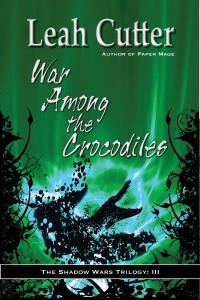 The end product was the Baker’s Dozen collection. I’m still proud of this collection. There are stories in it that I really love.
The end product was the Baker’s Dozen collection. I’m still proud of this collection. There are stories in it that I really love.
This fall, I’m going to be doing something similar. Not writing 13 short stories, but publishing them, one a week, culminating in the publication of War Among the Crocodiles, the final book in The Shadow Wars trilogy.
For one week, I’ll be offering each story for free in my blog as well as here.
In the first Baker’s Dozen collection, I wrote and published, The Third Raven. That story inspired The Raven and the Dancing Tiger which then led to The Guardian Hound and now I have the final book in that world, coming out in December.
One of the other things that I’m aware of, that I’ll be doing another blog post on at some point, is that I write lots of different things. Lots and LOTS of different things. I believe that’s one of my issues in regards to discoverability: Just because you loved one of my novels doesn’t mean you’ll love the next. I think it’s a rare reader who likes my entire body of work.
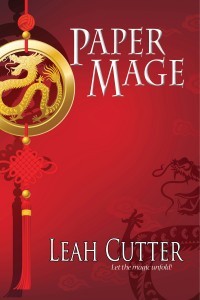 For example—I’m best known for Paper Mage– which is historic fantasy. I have three other historic fantasies. The Shadow Wars trilogy, at least The Guardian Hound and War Among the Crocodiles, have strong historic elements in them.
For example—I’m best known for Paper Mage– which is historic fantasy. I have three other historic fantasies. The Shadow Wars trilogy, at least The Guardian Hound and War Among the Crocodiles, have strong historic elements in them.
If you read one, will you like the other? Possibly.
I do have two trilogies (that I will be finishing, promise!) that aren’t related, but I believe if you like one, you’ll like the other – The Clockwork Fairy Kingdom books, as well as the Troll books (I’ve only finished, The Changeling Troll but The Princess Troll will be published in 2016. And I have the basic idea for The Fairy-Bridge Troll which is the third in that trilogy. Plus I’ve promised to finish The Dwarven Wars – the last of the Clockwork Fairy Kingdom trilogy, this year.)
Then there are the Chronicles of Franklin. I consider these “immersive”–dive down deep into the world and revel. The setting is rural. Franklin is deliberate. But boy, is he voicy.
If you like The Popcorn Thief (which is now in audio!) and The Soul Thief (which has audio coming soon!) what else would you like?
If your focus is on voicy characters, you might like the Cassie stories. But the pace is completely different. The voice and setting are also so very different. So the reader for one might not be the reader for the other.
And then I have the other novels. Like When the Moon Over Kualina Mountain Comes, which is dark, epic fantasy. Immersive, but different than Franklin. Much more fantasy, much less real world. (There will be a sequel to that, as well as other dark, epic fantasy novels.)
Which brings me to, Of Myst and Folly. I loved writing this novel. It’s a post-apocalyptic fairy tale. (The prequel to the novel, Of Rifts and Myst is here.)
If you like post-apocalyptic, you may like the following short story, the first of this Baker’s Dozen Redux. It’s called, Touch and it’s post-apocalyptic. It’s also flash fiction – 700 words long.
I’ve received some great rejections with this story. Many editors really liked it, wanted me to send them the next thing I wrote. But after a dozen submissions, it couldn’t find a home.
So I present it here. Strap yourself in. It’s gonna be a hell of a ride.
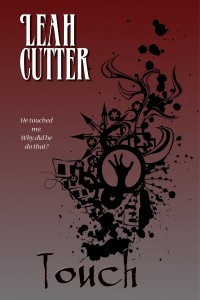
He touched me.
Why did he do that?
In a post-apocalyptic world where a single touch can contaminate and condemn, why did he touch me?
Available for free on Kobo and iBookstore. For $0.99 on Amazon.
Touch
He touched me.
Hell.
Why did he do that?
Did he contaminate me? Am I infected now?
Why did he touch me?
Did anyone see him touch me? Where are the cameras?
Don’t be obvious, just glance.
There’s only one. Over there. Up on the subway platform. To the right.
He touched my left arm. Maybe they didn’t see.
The ghost of the contact haunted me, raising the hairs along my neck.
I don’t think anyone saw him break protocol. It wasn’t like he touched my skin, but my sleeve.
His hands looked bare. Was he wearing noblos, or some other see–thru complex–blocking gloves?
Maybe his hands were actually bare. Like some kind of pervert.
No one exposed any skin. Not ever. I’d never be able to wear a short skirt in public. Let alone a sleeveless blouse.
I should burn this jacket, just in case. Put it into the biohazard incineration chute back at the apartment.
That idiot touched me. Who knows what contaminants he might have been harboring?
Why did he touch me?
It was deliberate. I know it was.
I couldn’t believe the contact when I felt it. I had to look.
He’s got on the same wide–spectrum isolation mask I do—mid–range price but high protection, with no incidents of contagion found on the public web. I can’t afford to search the private networks beyond those.
His eyes above the gray mask looked kind, not crazed or infected.
However, the photos of John Johnson, the terrorist who released the Singular plague, had friendly eyes. Lonely eyes. He’d merely wanted to find his soulmate, or manufacture one. The ultimate love potion, making both parties instantly attracted to one another, instantly desirable to each other.
He hadn’t counted on the mutations. On the writhing masses screwing themselves to death on the streets of the busier cities—Hong Kong, New York, London. The virus spread, and the sight of a man trying to screw a building or a woman impaling herself on a tree became common.
No one touches now, not skin on skin. There are a few who are naturally immune, not that anyone gets themselves tested: Who risks finding out they’re biologically incapable of falling in love? That it isn’t possible for them to be fully attracted to another?
Of course, there are always rumors that the governments of the world found a cure long ago that they’re not sharing, that scared people are easier to manage, while they get rich on barrier technology.
I think the rumors are wrong. Cities are no longer full, and a widely dispersed population is more difficult to manage.
So why did he touch me? Was he, too, looking for his soulmate? Had he watched too many old movies, or even the new city porn, created from video of long–ago security camera, showing strangers casually bumping into each other in the street?
He didn’t have permission to touch me. That alone should have stopped him. Did he get an illicit thrill by breaking the code?
I want to kill him.
His touch stripped me bare again of the illusion that I was safe.
We all pretend we are, the rich secure behind biotech fabrics, the not–so–rich underneath multiple layers of clothing, like wearing our old lives, carrying past into present. The poor just filled their jackets with plastic bags and mattress stuffing.
Was that why he touched me? To remind me of how thin the veneer of safety, of sanity, really is?
I wish I had screamed. I wish I had denounced him for what he is. Even if the police hadn’t believed me but only his lies if he’d denied it. Even if it would have meant an isolation ward for the rest of my life, or at least as long as I could afford one, before being passed into a public ward, becoming one of the writhing corridors of flesh.
Maybe he hadn’t meant to scare me, but to remind me to see the people around me, not merely as obstacles to avoid, but as companions on this difficult journey. Maybe he wanted me to touch him, too.
He’ll never get his wish.
I must go cleanse myself now.
Crossposted from my website. If you'd like to comment, you can do so here or there.
July 28, 2015
Honeymoon…
Just a few pictures from the camping trip we took as part of our honeymoon.
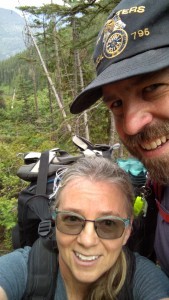
Day one, at the start of the hike UP the mountain
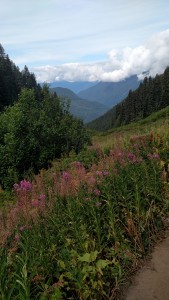
Looking up at the meadow of gorgeous flowers. We’d already hiked through a bunch of woods at this point.
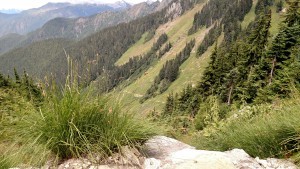
Past the fields, looking back down at the trail.
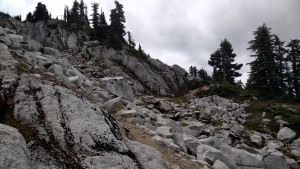
Looking up at the trail, through the rock fields.

Hidden Lake – the sight we’d climbed so far up to see!
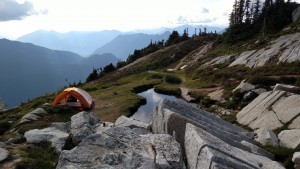
Back on the other side of the ridge was a beautiful small meadow, next to a glacial fed lake, where we decided to camp for the evening.
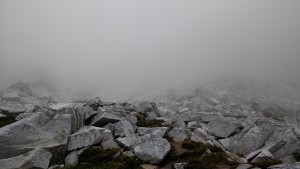
And then the fog rolled in…Couldn’t see anything for much of the next morning.
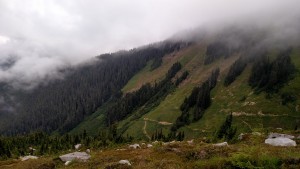
Going back down.
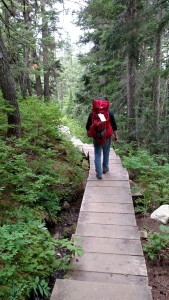
Just a few stairs through the woods.
Crossposted from my website. If you'd like to comment, you can do so here or there.
July 5, 2015
Five things make a post…
1. The latest coffee roast is a special Brazilian coffee from an estate. I tried a different recipe this time – started off with a lower temperature then turned it hot.
OMG does it make WONDERFUL coffee. The whole beans in no way prepare you for what the coffee smells like when ground. There are at least 14 additional layers, including citrus notes, that I at least can’t smell in the bean.
Am planning on trying that again.
2. The wedding skirt is mostly finished. I’ve hemmed it (thanks to my lovely matron of honor and fiancee.) I’ve put in the zipper. The only remaining things are some hooks for the waistband, as well as some artful tacks for the flounces. Though they flounce beautifully on their own, I’m going to add a couple stitches here and there to keep them in those general positions. As well as link the lining to the skirt.
2a) I’ve added buttons to my vest. Am still struggling to figure out the buttonholes. The actual buttonhole function on this machine doesn’t work. May actually break down and purchase a sewing machine. All my machines have been hand-me-downs.
3. I have no word count goals for July. Whatever words I get done will be enough. Period.
4. Am willing to find better gods (or better sacrifices, even) to help bring this heatwave to an end. Am SO TIRED of this weather. It isn’t what I signed up for, moving here to Seattle. Y’all are on notice.
5. Wedding is less than two weeks away. EEEEEEEPPPPPP!!!!!!!
Crossposted from my website. If you'd like to comment, you can do so here or there.
June 30, 2015
The Soul Thief Now Available!
I have a new novel out! It’s The Soul Thief, the sequel to The Popcorn Thief.
Here’s the blurb:
Ghosts get stuck sometimes.
Franklin sees it as his duty to help them along, get them to pass from this earth to the Beyond.
But some ghosts start returning. Haunting Franklin. Destroying his crops.
Franklin learns he must use an ancient, powerful blade to force the ghosts back Beyond.
However, someone else wants that knife, for purposes that involve life and death, not just for the ghosts, but for all the living as well.
—
And to celebrate this new novel, I’m ALSO doing a Goodreads giveaway! Check it out!
I had so much fun writing this novel. It was sheer joy, exploring the world again with Franklin, to hear his Voice, to be in such a grounded, realistic character. (Yeah, he sees ghosts. Still one of the most grounded characters I’ve ever created.)
I hope you have as much fun reading this book as I did writing it.
It’s available at your favorite retailers.
Crossposted from my website. If you'd like to comment, you can do so here or there.
June 26, 2015
Sneak peek…
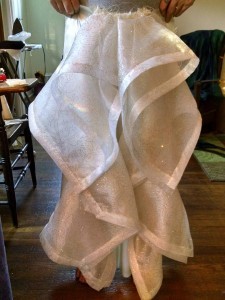
Sewed two of the flounces onto the skirt. OMG so pretty! Lot of work, but worth it.
Crossposted from my website. If you'd like to comment, you can do so here or there.
June 23, 2015
Flounces and glitter…
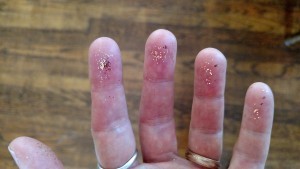
Yes, there is glitter.
And as we all know, glitter is forever.
But I thought people might be interested in a wedding dress update.
Warning – lots of pictures ahead!
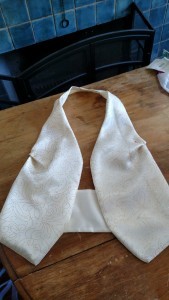
This is the vest that I’ll be wearing. It’s got an open back. I haven’t finished fitting it yet because I’ll be wearing it over the skirt, and I need to finish the skirt to get accurate measurements. It’s ivory satin, over lining, and over that is the netting with glitter.
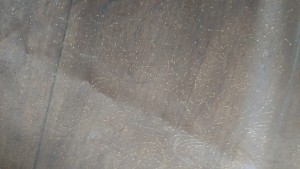
Not sure how well that shows up here. But yes, netting with glitter.
Lots and lots of glitter.

This is the skirt pattern. Notice the flounces. They’re all made of that netting with glitter. There are 6 flounces. 41 yards of horsehair braid around the edges of it.
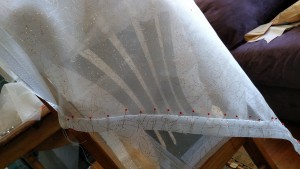
So this is one of the flounces, with the horsehair braid pinned being pinned into the hem.
Today I’ll finish the flounces. Tomorrow, I start sewing the skirt together. Wish me luck!
Crossposted from my website. If you'd like to comment, you can do so here or there.
June 16, 2015
One More Time!
In celebration of the publication of The Soul Thief, I’m doing a Goodreads giveaway of five copies of Book One in the Chronicles of Franklin, The Popcorn Thief! (You’ll also note the new cover on this book, to match the second book.)
Here’s the blurb:
Ghosts get stuck sometimes.
Franklin helps them move from this world to the next. Sometimes that means giving a ghost a ride so they can confront their killer. Other times, it means listening to the wind in his fields and the trucks blowing down the interstate and hearing the songs a ghost needs to sing.
Generally, Franklin happily does whatever a ghost needs. It’s his duty.
Then Gloria shows up. She wants Franklin to steal the crop of his rival, Karl—they compete every year at the Kentucky State Fair for the blue ribbon prize for who grows the best popping corn.
Franklin’s no thief. His mama taught him better.
But something else is out there, hiding in the fields. Something much worse than a ghost.
A creature that’s not interested in stealing crops, but in taking people’s lives and powers.
A thing that Franklin and his family must stop.
—–
Normally, I have a soundtrack when it comes to a book. Or rather, the characters frequently inform me about the music they want to listen to.
With Franklin–there was no music. He only ever listened to the sound of the wind blowing through his cornfields, the whoosh of trucks blowing by on the nearby interstate.
Franklin has a profound sense of quiet. As well as a deliberate manner. He’s very solid in who he is and what he does.
And yet, this character still had some changes to go through. Some things to learn and do. Not just in this novel, but in the next one as well.
I had so much joy writing “The Popcorn Thief.” And then again, writing “The Soul Thief.” I hope you have as much fun reading them!
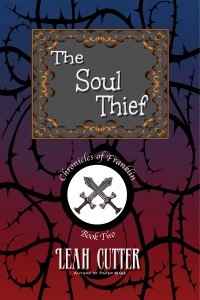
Crossposted from my website. If you'd like to comment, you can do so here or there.

